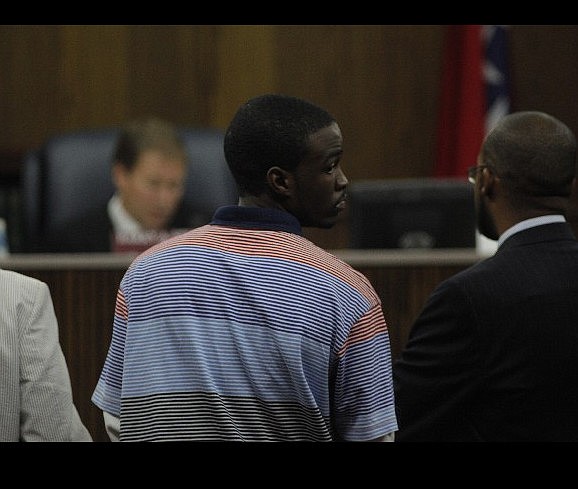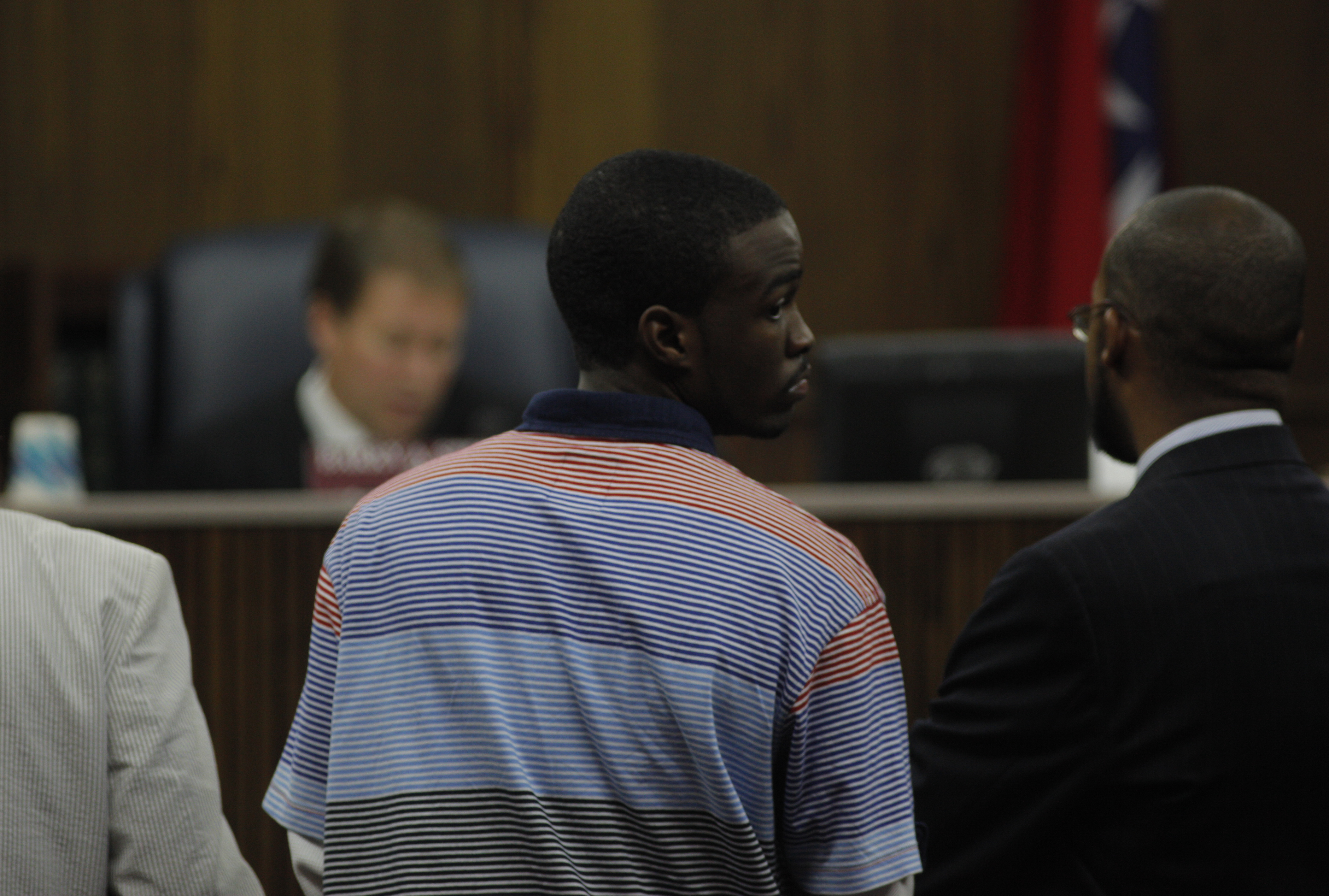ABOUT THE 34At least 20 of the 34 men indicted in November in a federal cocaine conspiracy have pleaded guilty and nine have been sentenced. Guy Wilkerson Jr. received the lowest punishment so far, a 10-month prison term for minor involvement in the conspiracy. Stephone "Lo Key" Reed was slapped with an 11-year sentence for gun and carjacking charges.
A federal judge will decide whether errors on a wiretap warrant in a major cocaine trafficking case were "sloppy" policing or intentional illegal actions by federal agents.
If U.S. Magistrate Judge Bill Carter finds that agents crossed the line, he could toss out evidence against Jumoke Johnson Jr., one of 34 men charged in a federal cocaine conspiracy that local authorities in November lauded as a major blow to drugs in the Chattanooga area.
Former police Chief Bobby Dodd dubbed them the "worst of the worst," a label that drew sharp criticism from the men's family members and supporters.
Johnson faces two charges of narcotics distribution.
His attorney, Hugh Moore, attacked details in the warrants in an attempt to show errors he thinks are signs of illegal wiretapping, which would taint any evidence gathered from the wiretap.
Moore parsed the phrasing, dates and testimony of lead agent James Hixson, a veteran Chattanooga police officer who has worked as a Drug Enforcement Administration task force officer for a decade.
At a Jan. 9 detention hearing Hixson testified that informants believed Johnson, a Rollin 60s Crips gang member, was involved in local killings and was able to order other gang members to commit crimes for him.
But Moore spent Wednesday morning focused not on drugs or killings but instead delved into the history of the wiretap.
Hixson testified Wednesday that he reviewed phone company records showing that Johnson had made and received 29 calls with Juanzell "Little Bruh" Jenkins and 19 calls with Robert Stephon North in May 2013. Prosecutors allege that Jenkins and North, also arrested in the 34-man roundup, are known drug traffickers.
An officer doesn't need a warrant to obtain and examine a suspect's phone records, a technique known as "toll analysis."
Based on Johnson's call records, Hixson requested a wiretap warrant from Hamilton County Criminal Court Judge Rebecca Stern. That would allow him to use a real-time tracking device known as a "pen register," which shows the officer who is calling who at the time the calls are occurring.
Hixson testified that he used "toll analysis" to connect Johnson with Jenkins and North. But in the warrant he wrote that he used "pen register," not "toll analysis," to connect North to Johnson, which he couldn't have done without a warrant.
Moore told Carter that Hixson "misled" Stern by saying the call information came from a warrant that Moore said hadn't yet been issued.
For that reason, Moore wanted all of the evidence from the wiretap dropped.
The agent repeatedly testified that Moore wasn't understanding the whole document clearly because later paragraphs gave detailed explanations of the "toll analysis" used on North.
But if Moore couldn't get that, he had a second line of attack that could eliminate half of the evidence. This one had to do with a date -- June 1, 2013.
Most of the documents indicate that the warrant ran from June 18 to July 17, 2013. But one sentence in one report gives June 1 as the start date. Hixson and prosecutor Chris Poole said that was a typo. Moore seized on it as revealing what he called an illegal wiretap.
Moore claimed that the June 1 date on one of the documents shows that the wiretap was started before Hixson got a signed order from Stern. But Poole contended that the single error was far outweighed by subsequent references to correct dates throughout the time of the warrant.
Poole called the entire hearing a "colossal waste of time" and said Moore was "good at picking the parts he likes."
Carter seemed to lean more toward Poole's thinking in the hearing when he said, "I don't think from these facts that (Hixson) intentionally tried to mislead (Stern)."
"Either he intentionally misled (Stern) or he was sloppy," Moore said. "He testified under oath that it was 100 percent accurate."
"I find often the truth is somewhere in between," Carter said.
Carter will issue a ruling, likely in the coming weeks on whether the wiretap evidence will be admissible in a possible trial against Johnson.
Contact staff writer Todd South at tsouth@timesfreepress.com or 423-757-6347. Follow him on Twitter@tsouthCTFP.

